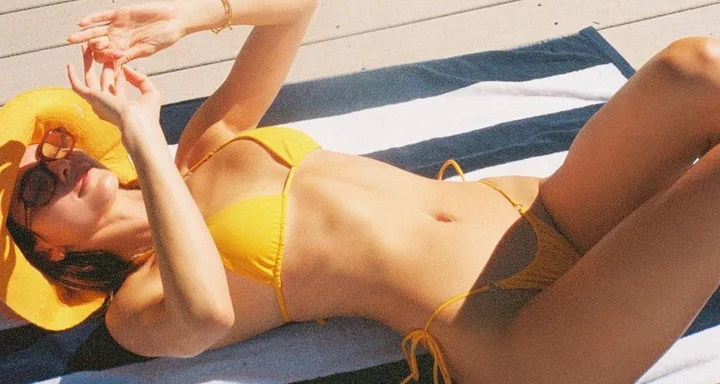Many Australians will forever have the slogan ‘tanning is skin cells in trauma’ imprinted on their brains after years of the Cancer Council’s anti-tanning culture advertising.
However, it appears that in recent years there has been a resurgence in the popularity of sunbaking, with tanning products to crisp up in our punishing sun being promoted to young Australians.
This country continues to have the highest skin cancer rates in the world, with one person diagnosed with the devastating illness every 30 minutes.
Often the life-threatening impacts of skin cancer are glossed over, with many thinking that it won’t happen to them, but it is a reality that late Australian journalist Natalie Fornasier knew all too well.
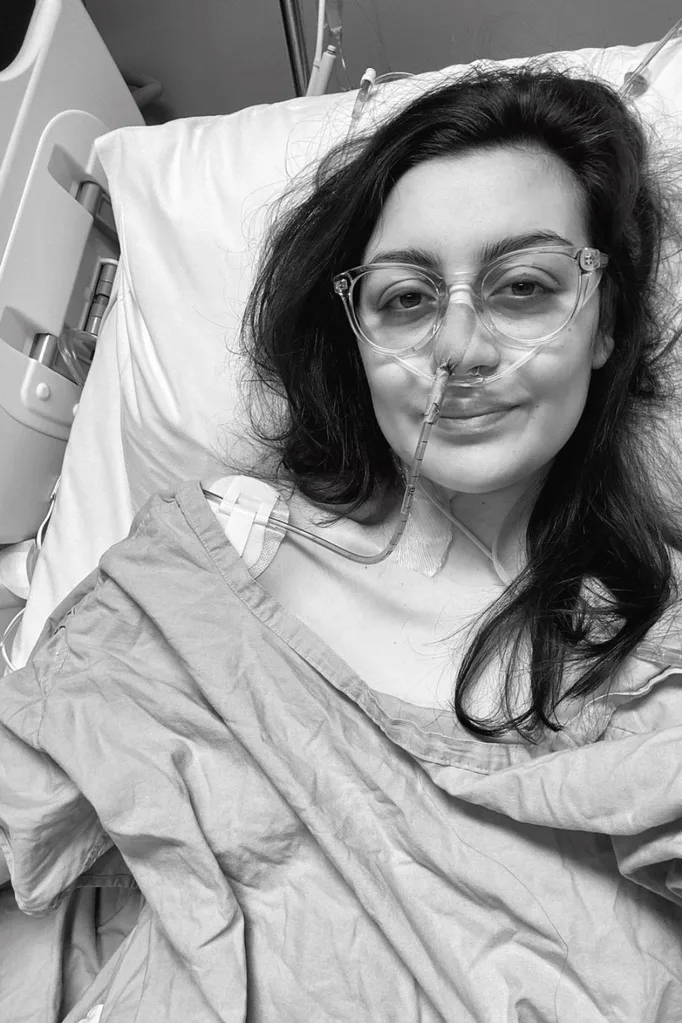
Fornasier, who passed away last month aged just 28, tenaciously documented her skin cancer journey, after finding a mole on her toe and being diagnosed with a Stage Three metastatic melanoma in 2014. She was a strong advocate for greater awareness around the dangers of sun exposure for young people.
Why is tanning back in the news?
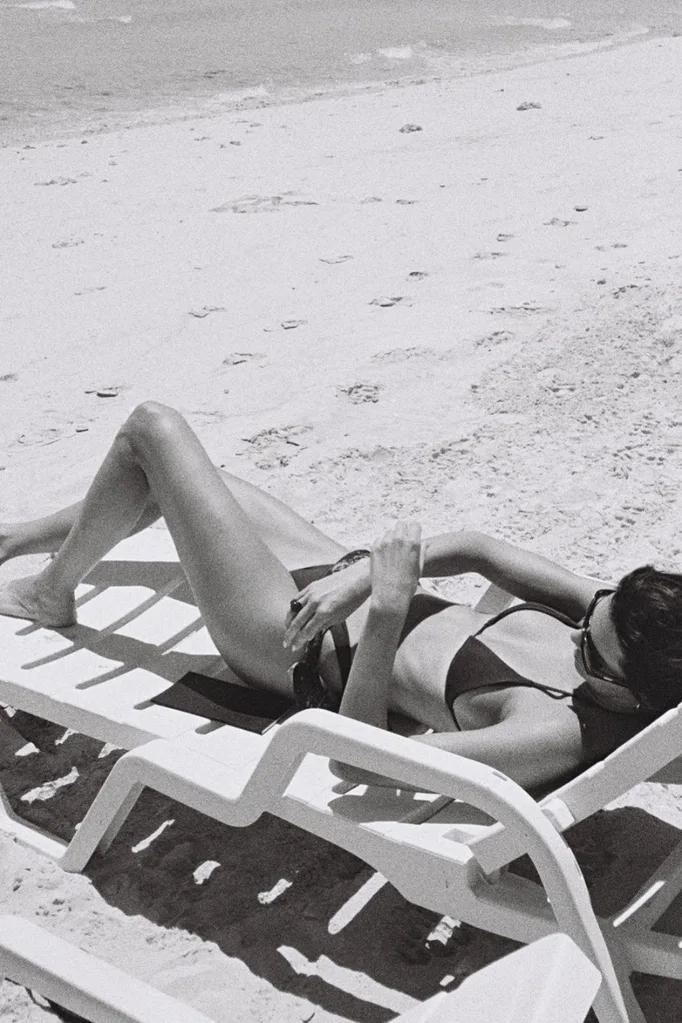
The reality of what it means to get skin cancer is far more harrowing than a few crows’ feet, but it seems the latter is all that is being prioritized.
Anecdotally, you don’t have to look far to find a videos promoting sunscreens for the face. We’re encouraged to wear it to prevent fine lines and wrinkles, but wearing sunscreen for skin safety can get, well, forgotten. And if recent advertising campaigns are anything to go by, tans and tan lines are on the verge of becoming ‘trendy’ again. Make no mistake: this is dangerous. As the old slogan goes, there’s nothing healthy about a tan.
“It would be irresponsible of me not to shine a light on the problematic nature of tanning culture, especially in this country,” Fornasier said on Instagram a few short years ago.
“Melanoma is REAL. Skin cancer is REAL. The stats say it all – melanoma is the most preventable cancer and yet it is the most common cancer in 15-39 year olds.”
Her passing saw an outpouring of support from friends, family and colleagues, all of whom wanted to do something to tackle the growing pro-sun tanning community online.
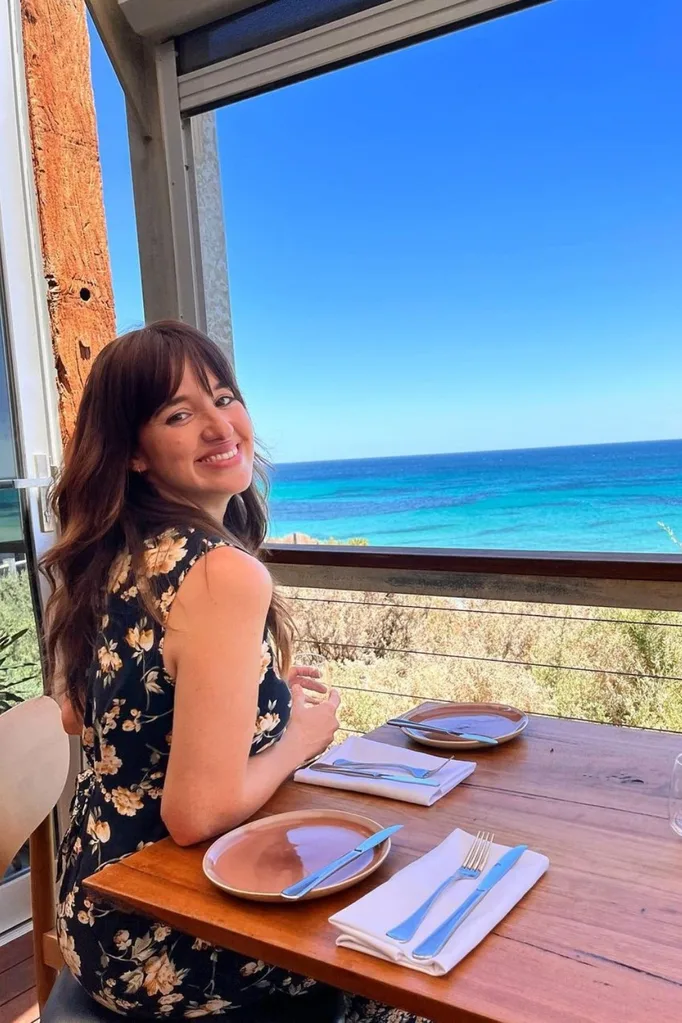
It’s something that journalist Melissa Mason has taken into her own hands, starting a petition on Change.org to ban sun tanning products from advertising in Australia.
She’d noticed that brands targeting young women were advertising products on Instagram and TikTok to assist in deep – read: dangerous – tans, including by using them in sunbeds (which have been banned in Australia for commercial use since 2015, but are still legal to own for personal use).
The petition aims to encourage the Department of Health to thoroughly investigate the advertising and marketing of sun tanning products in Australia and “act quickly to prevent young people from following dangerous trends generations before them have paid the price for”.
Specifically, it will target products that have no SPF but are designed to be worn in the sun to get a tan, and stricter regulations around tanning products and tanning culture in general.
It’s a topic that is garnering a lot of interest, with Australian designer brand Christopher Esber recently forced to remove images of their latest bikini campaign due to the stark tanlines sported by the models in the imagery.
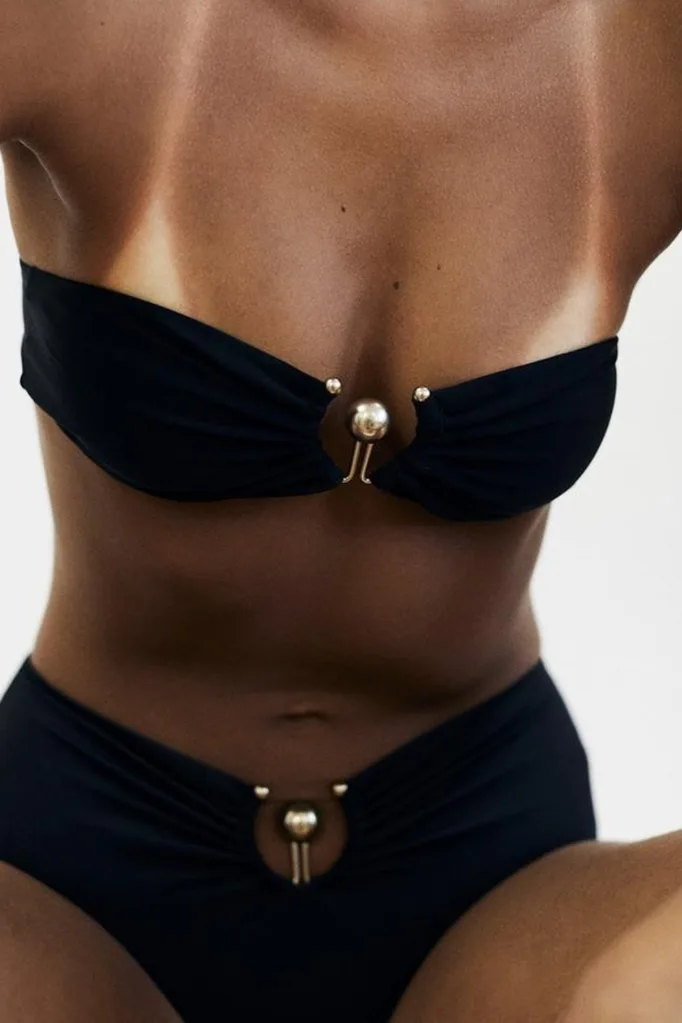
The brand acted quickly and has since told news.com.au that it does not condone the glamorization of tanning or promotion of sun tanning.
“We have removed the images off all platforms effective immediately and take full responsibility for this creative choice,” a spokesperson said.
Mason’s petition has already garnered 4.5k signatures and counting. She believes it’s high time there was a change in our discourse around tanning.
“There hasn’t been a major sun safety campaign around tanning for over 15 years,” she told marie claire Australia, referencing that the ‘There’s nothing healthy about a tan’ campaign came before the social media boom.
“In terms of messaging directed at young people and educating them on the dangers of sunbaking, we just haven’t had the fear drilled into us for a long time.
“That’s why, in my opinion, we’re seeing a wave of sunbaking culture, and that’s coming from brands that profit off it being the culture. Not just being tanned (via fake tan) but cultivating a sun tan.”
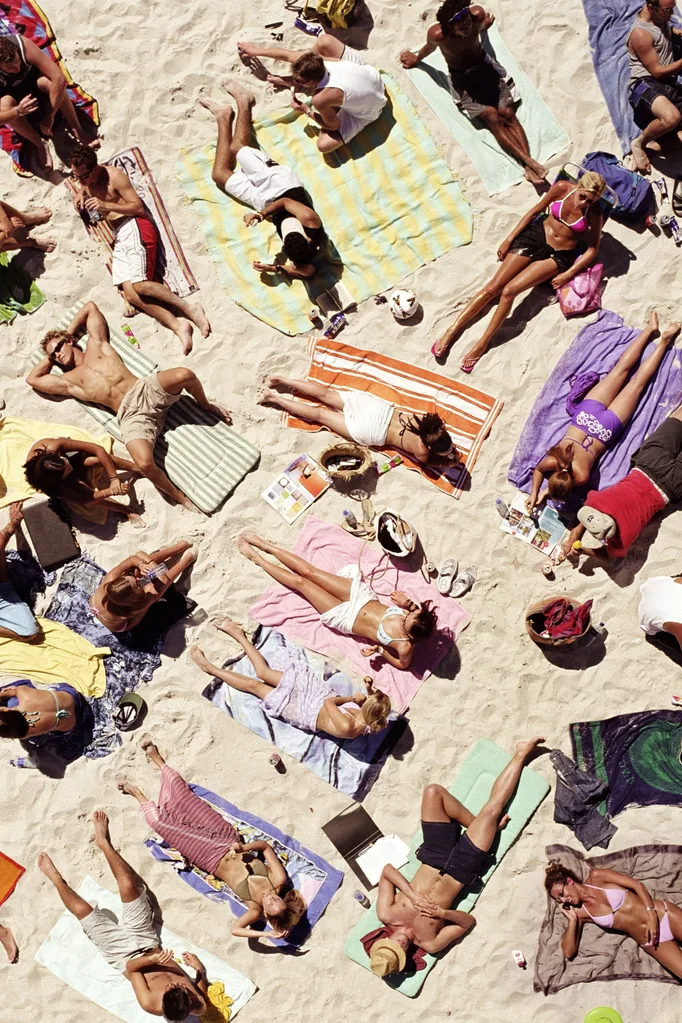
Mason is hoping her petition will make influencers and brands rethink their approach to sun baking.
“I am not about dictating what people should or shouldn’t do with their own body, but I do believe that when you are an influencer and when you are a brand, you have a responsibility because what you directly or indirectly promote has an impact,” she says.
For Mason the motivation for the petition has been brewing for a long time, from listening to an episode of the podcast Outspoken about influencers promoting sun tanning products to Natalie Fornasier’s story.
“She was an incredible woman and a passionate campaigner for sun safety… I was like how has no one in power noticed this rampant promotion of sun baking culture by brands that make money off people lying in the sun trying to get a tan, and stepped in?”
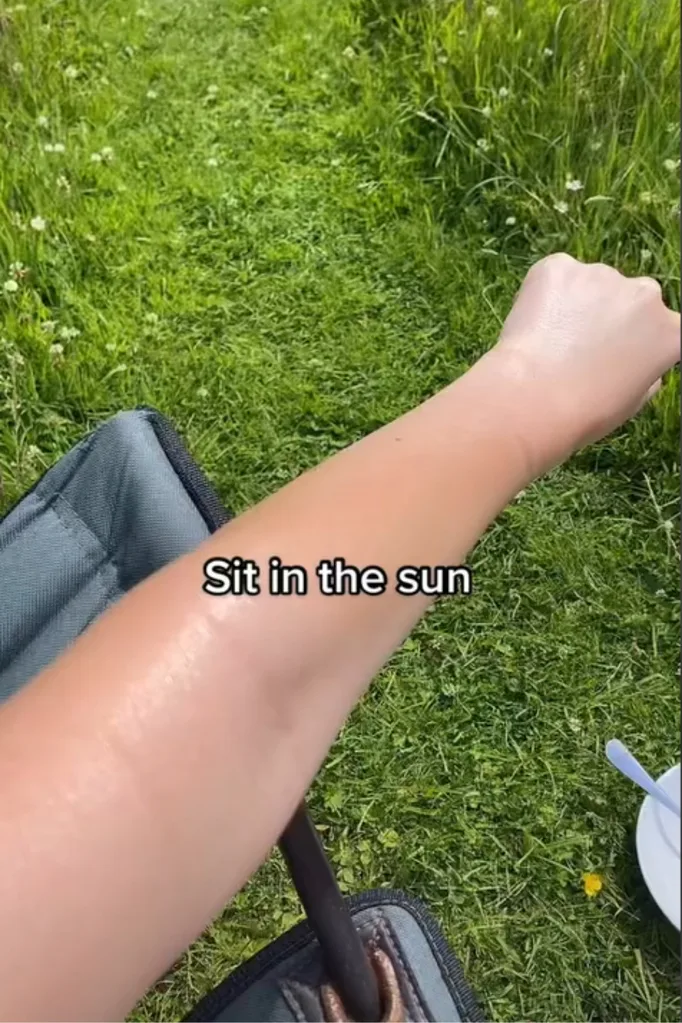
Mason adds, “I’m so happy [the petition] is taking off and my next steps will be approaching my local member to get some traction in parliament, hopefully.”
It’s an appropriate time to start this advocacy process, with World Cancer Day on February 4. Cancer Australia’s early 2023 forecasts suggest that there will be more than a staggering 17,000 skin cancers diagnosed this year alone.
There’s no greater truth than the experience of someone who has already lived it. Fornasier shared a number of messages and warnings on her social media as a part of her advocacy work.
One of the most poignant was this. “If you think sun safety (aka, living) is daggy you need to reassess your perception and understanding of how that came to be,” she wrote.
“Bottom line, a tan is NOT WORTH living in fear. My life is lived in the waiting – bookended by appointments, treatment and hospital.
“I won’t stop sharing because the narrative around sun safety needs to change. I know I sound like a broken record when I say, health is wealth. But it’s the truth. Protect it.”
How Can I Support The Petition?
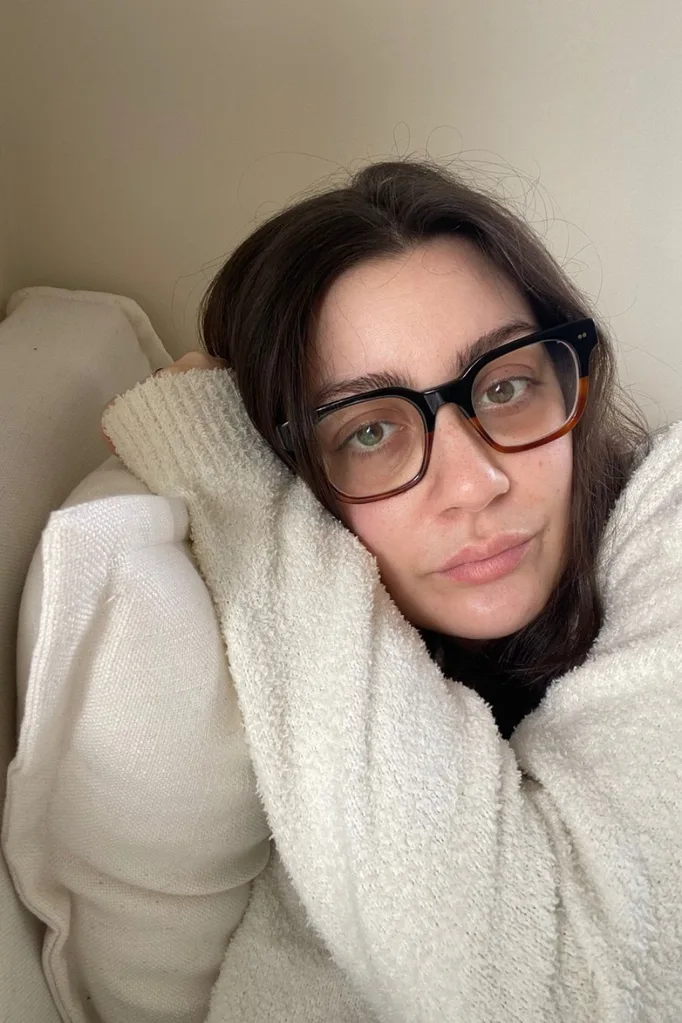
Mason suggests we support the petition by signing it and sharing it widely with the people you know. Find it here.
“Also, talk to people in your life that actively try to cultivate a tan,” she suggests. “Give them the statistics. Melanoma Institute of Australia and the Cancer Council both have them on site, and they’re terrifying. We need to be afraid of sun damage. It plays a major role in causing cancer in this country.”
How Can I Support Natalie Fornasier’s Family?
Before her passing Fornasier put together a GoFundMe to support her husband Alexander and family to grieve without financial worry. You can support her cause here.
